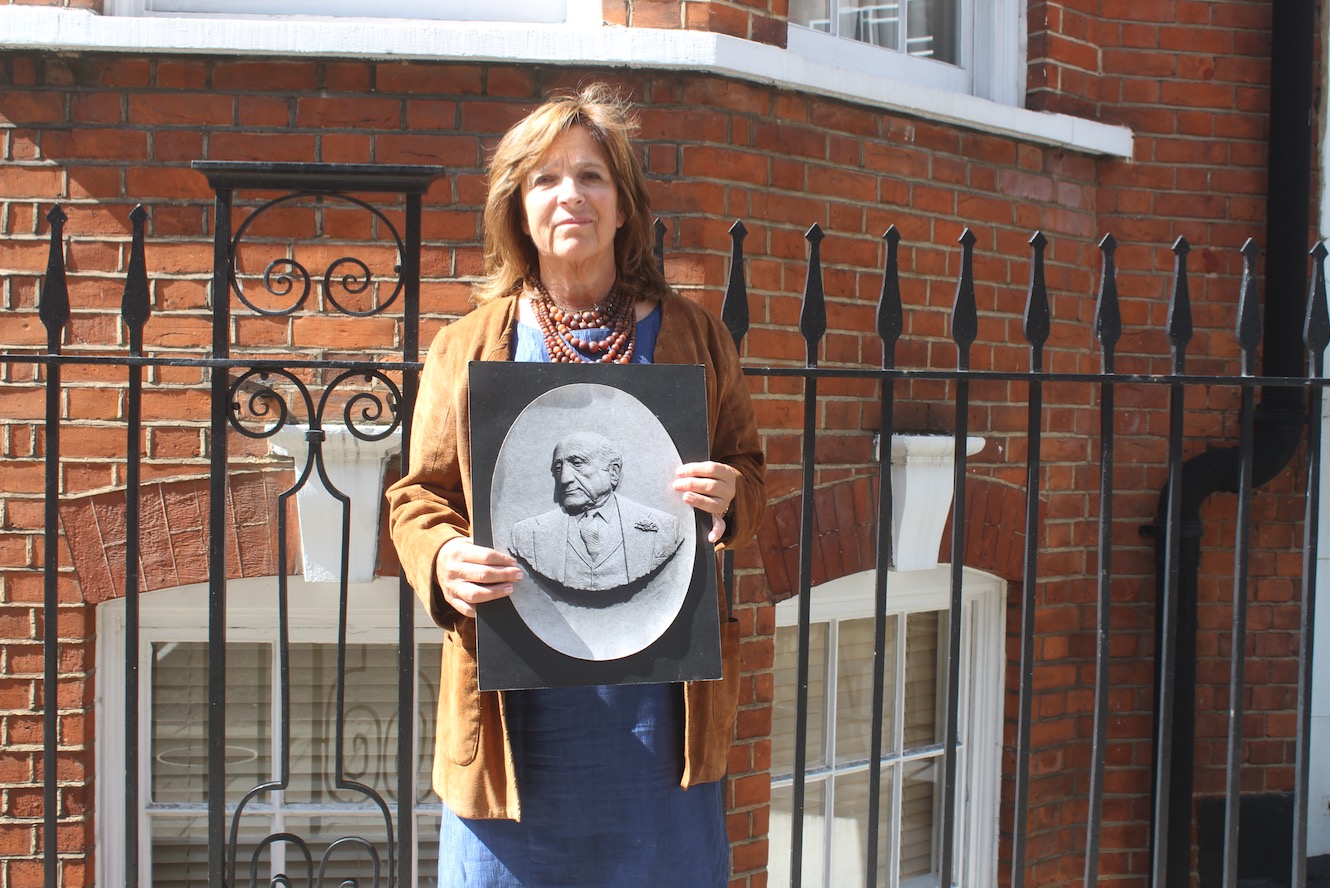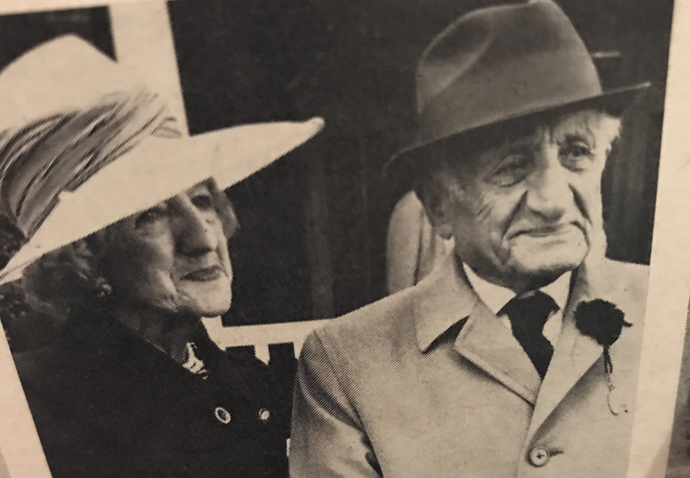Sobell Centre, a gift from a man who owed England everything
He arrived as an 11-year-old escaping anti-semitism and became a millionaire philanthropist
Friday, 1st September 2017 — By Emily Finch

Gaie Scouller with a photograph of a relief sculpture of Sir Michael
HOLLOWAY’S Sobell sports centre – where work on a controversial trampoline park has started – was funded by a millionaire philanthropist who believed he “owed England everything” after escaping from anti-semitism.
The popular centre, which has provided indoor sports for more than 44 years, is named after Sir Michael Sobell, who came to London with his wealthy oil-producing family in 1903. They moved to Dalston from Boryslav, now in Ukraine, when Michael was just 11.
He attended Finsbury’s Central Foundation Boys’ School where, according to his granddaughter Gaie Scouller, he was a “diligent pupil determined to master the English language”.
He would always carry a dictionary with him and learnt 10 new words a day while maintaining proficiency in Russian, German, Yiddish and Ruthenian – a little-used Ukrainian dialect
The Finsbury school’s corridors are lined with photographs of famous former pupils, ranging from jazz saxophonist Ronnie Scott to BBC presenter Reggie Yates. Michael’s photo is set to adorn the walls following a recent discovery by the school that he was a former pupil.
Britain was a sanctuary for his Jewish family. Michael would often recount the segregation he faced in his native Boryslav, where Jews and non-Jews would be separated in the classroom.
But he also faced trouble at his new school in Finsbury when on his first day the school bully picked on him and challenged him to a fight. He retaliated by knocking him out from behind and no one tormented him again.
After leaving school at 16, Michael started importing leather goods and then electrical appliances, including fridges, gramophones and radios. Advertising campaigns were his strong point. He sped down Oxford Street blasting out music from his imported radios in the car of his friend Gordon Selfridge, founder of the store.

Sir Michael Sobell with his wife Anne
He eventually went on to manufacture radios in Stonebridge, north-west London, then later Amersham, Bucks, and Aberdare, in South Wales, when his original factory was bombed in World War II. Business boomed through contracts with the Air Ministry and the admiralty.
In 1962, Michael set up the Anne and Michael Sobell Trust, named after the wife he married in 1917 following a courtship where they would go on dates wrapped in rugs on the top deck of a bus.
The trust, later named the Sobell Foundation, would dispense millions of pounds to help people in Israel and Britain.
“He once said that he owed England everything and that he wanted to give something back,” said Ms Scouller. “He directed all donations from the trust until about five years before he died.”
He received a knighthood in 1972 for his charitable work, which included funding the first headquarters for Macmillan Cancer Relief, a hospice in Oxford and an old people’s home in Kent.
He donated £1.1million – worth £12million in today’s money – towards the cost of the Sobell Centre in 1973. The Town Hall and the Variety Club of Great Britain also contributed to the £2million total.
Ms Scouller said she was unsure why her grandfather had funded the council-owned centre when he was not keen on sports other than horse-racing.
“Somebody must have come along with an idea he liked. Indoor sport wasn’t available and very unusual. There were other indoor centres, but privately run and very expensive. I believe the centre was one of the first ones to open at a very subsidised rate and totally accessible for all,” she said.
Ms Scouller is a trustee of the foundation, with her two children due to join her in two months.
Instead of focusing on large projects, the foundation now contributes to the running costs of charities and hospices. Ms Scouller says she receives hundreds of letters a year asking for help.
Outside of charitable work, Michael was a “family man”, according to his granddaughter. Instead of partying when Troy, the horse he owned with fellow businessman Arnold Weinstock, won the Derby in 1979, he went home to his wife as usual.
“He was an incredible grandfather, totally devoted and spoilt us, but was also very strict. He used to sit us on his knees and tell us a joke,” said Ms Scouller.
Sir Michael died in 1993 in Englefield Green, Surrey, just shy of his 101st birthday.